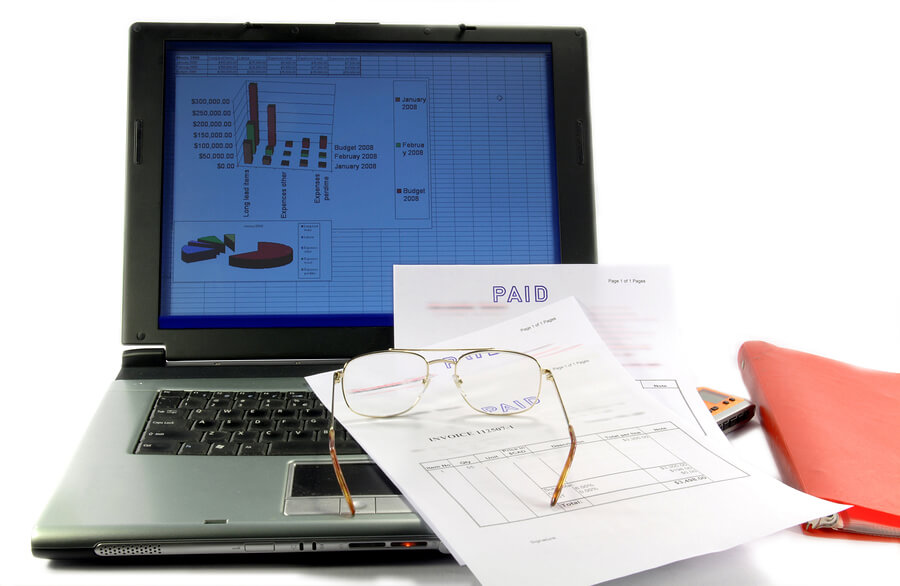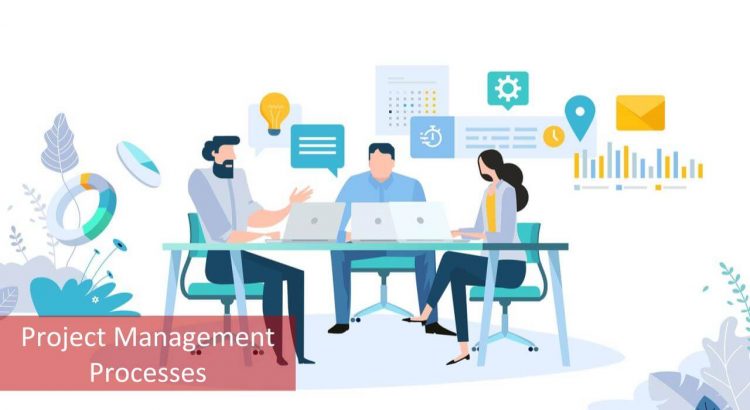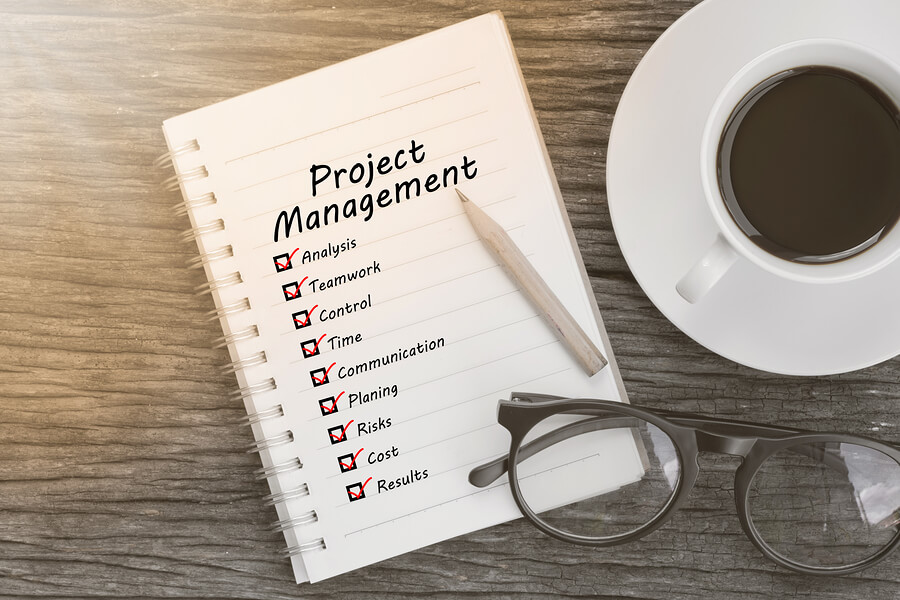Project management is a complex and interdisciplinary field. To complete a project successfully, you must complete it on time, on budget and meeting the agreed quality level. To achieve this, you must use project management processes. There are different project management frameworks such as PMP, Prince2, IPMA etc. The most reputable project management framework is PMP (Project Management Professional) from PMI (Project Management Institute). We will be going over the 49 PMP Processes in this post and how they help to complete a project successfully.
Attend our 100% Online & Self-Paced One-Hour Free PMP Training.
Project Management Framework of PMI has 10 different project management knowledge areas. Each knowledge area has its own project management processes to reach project targets. Let’s examine them one-by-one.
After helping over 200,000 professionals in more than 180 countries with a 99.6% first attempt pass rate, we have prepared a seven-step PMP study plan. Read this PMP study plan and create your own PMP Certification plan accordingly.
1) Project Management Processes – Integration Management
Project integration is the basic role of project managers since it provides a tie between different knowledge areas. It’s the mean for the project manager to connect project components and tie them together. In fact, we can say the project manager is an integrator. As he integrates the work of others and integrates other Project Management Knowledge Areas into a unified effort towards project success. It includes processes, activities, and tasks used to combine different project efforts into a unified directed effort towards project success. Due to these mentioned factors project integration is the one and only responsibility the project managers can’t delegate.
PMP Process #1 – Develop Project Charter Process
Develop Project Charter process objective is to provide formalize the project existence. In addition to provide the project manager with an authorization document to have access to resources required for the project.
The process of Develop Project Charter is performed once at the earliest stage of project initiation to facilitate the work of the project manager. The key deliverable of this process includes the project charter. The project charter is a document that is derived from the project business case and benefits management plan processed in light of relevant contracts, agreements, and processes to the project. Companies usually use the project charter document for internal projects authorization. On the other hand, companies use contracts instead when dealing with external customers projects due to the involved legal consequences. The project charter document mainly contains the project objectives, high-level requirements and project exit criteria.
Also Develop Project Charter process provides assumptions log. Assumptions log contains project high level assumptions and constraints.
Watch our “What are the PMP®, PMBOK®, Project Management Knowledge Areas?” video
PMP Process #2 – Develop Project Management Plan Process
Develop Project Management Plan process objective is to combine all project plans into a single integrated project management plan. The process is vital to project planning since it’s meant to rectify any misalignment between component plans. In that sense, this process is crucial for project success. Even if there are expert planners taking care of component plans, The project manager must be on top of this process.
The key output of this process is the project management plan, an integrated and aligned version of all project sub plans approved and signed by key stakeholders.
Note that, project management processes are documented and controlled by the help of project management templates. You can see sample free project management templates to have an idea of how they work.
PMP Process #3 – Direct and Manage Project Work Process
Direct and Manage Project Work process refers to leading and controlling the project work activities. The key outputs of this process are the finished work deliverables and change requests for project work. This process aims to increase the probability of project success.

PMP Process #4 – Manage Project Knowledge Process
This process aims to improve the project product and results using existing knowledge. In addition to the previous objective, Manage Project Knowledge process also helps to update company and project team knowledge. Also, Manage Project Knowledge outputs help improving future phases of the project as well as future projects results.
PMP Process #5 – Monitor and Control Project Work Process
Monitor and Control Project Work process refers to the activities of assessing, reviewing and documenting project work. Its main objective is to provide a clear status of the project work, identify performance issues and improvement areas. Also, the main deliverable of this process is work performance reports.
PMP Process #6 – Perform Integrated Change Control Process
This process is concerned with managing change requests effectively throughout the project lifetime. Also, Perform Integrated Change Control process takes care of change requests documentation. Besides that, the process focuses on assessing its impact on different project aspects including scope, cost, time and other project variables. As a result of performing this process in the right manner, project results improve dramatically.
PMP Process #7 – Close Project or Phase Process
Close Project or Phase process refers to the activities the project management team do to complete all remaining phase or project activities. The project manager performs this process each time he completes a phase or when he closes the whole project. This process focuses on ensuring all planned work for the phase or project is complete and all relevant information are stored in the right place. It also helps in providing an official announcement of phase or project closure. The key deliverable of the Close Project or Phase process is the final project or phase product.
2) Project Management Processes – Scope Management
Scope management knowledge area aims to ensure that the project team completes all project related work and only this project related work. Accordingly, this knowledge area focuses on defining what is project related work so the project team can do it. Also, defining what is not included in the project work so that the project team makes sure they do not do it.
PMP Process #8 – Plan Scope Management Process
This process main purpose is to set the way to plan, manage control and assess project scope. The key deliverable of the Plan Scope Management process is scope management plan. You can consider as a guide for the project team on how to deal with project scope in different stages of the project. In addition to requirements management plan which also is a guide but for how to deal end to end with project requirements.
PMP Process #9 – Collect Requirements Process
Collect Requirements process aims to gather project requirements from different people concerned with the project. As well as managing and organization these requirements in a way that helps the project in meeting its objective. The main output of this process is requirements traceability matrix a document that acts as a tracker for gathered requirements.
PMP Process #10 – Define Scope Process
The process of Define Scope main purpose is to provide a complete detailed description of the scope of project product. As well as the work the project team needs to perform to produce this product. At the same time, it defines the boundaries of project work and the acceptance criteria of this work. By performing this process, the project team should have a project scope statement.
PMP Process #11 – Create WBS Process
Create WBS process refers to the activities of breaking down project work into smaller pieces of work so it can be more manageable. The result of performing this process is a framework of what is needed to be delivered and all related information to this work.
PMP Process #12 – Validate Scope Process
Validate Scope process aims to confirm and formalize accepting project outputs and deliverables. As a result of this, the probability of customer accepting final product increases. In addition, it helps the project manager in detecting variance between requirements and expectations and actual work early.
PMP Process #13 – Control Scope Process
This process key concern is to confirm the project team is doing all scope of work according to the planned scope. Also, Control Scope ensures proper management of change requests related to the scope of work. Accordingly, the result of performing this process effectively is maintaining healthy scope without any slippage in scope or resources.
3) Project Management Processes – Schedule Management
Project schedule management processes are concerned with project work timelines, including planning when to start and when to finish the project. Also, they’re concerned with how to control the influence over them. Thus all of the schedule management processes are distributed between planning and monitoring and controlling process groups only.
PMP Process #14 – Plan Schedule Management
This process is mainly concerned with defining guidelines for the planning and controlling project schedule activities. Thus the end product of the process is a guide of how to plan and how to control project schedule.
PMP Process #15 – Define Activities
Define Activities process refers to the activities of identifying exact actions to perform in order to produce the project deliverables. Thus its main output is a list of all activities required to produce the project final product.
PMP Process #16 – Sequence Activities
This schedule management process is concerned with identifying the relationships between different project activities as well as any dependencies or relationships with activities outside the project. Due to the predictive projects nature, this process becomes vital for project success since performing it effectively leads to the reduction of sudden slippages in time. At the same time, agile projects can also benefit from it in the same manner.
PMP Process #17 – Estimate Activity Durations
Estimate Activity Durations process refers to the actions and activities the project team performs to set durations for each project activity. These durations helps to form the entire project timeline once it’s combined with the rest of project schedule components.

PMP Process #18 – Develop Schedule
This schedule management process refers to the efforts of combining different project schedule components to produce a realistic project timeline. In other words, Develop Schedule involves multiple activities including analyzing defined activities sequences, estimated durations, and resource requirements and constraints.
PMP Process #19 – Control Schedule
This process involves all activities the project team performs to ensure that the project schedule is not changed improperly. Also, it involves making sure updating the project schedule with completion of activities and reviewing change requests impact on schedule.
4) Project Management Processes – Cost Management
Cost Management refers to all the processes and efforts the team performs to plan and monitor project costs and keep them within control.
PMP Process #20 – Plan Cost Management Process
Plan Cost Management Process defines the guidelines on how to estimate, manage and monitor project costs.
PMP Process #21 – Estimate Costs Process
This process involves calculating the monetary resources needed to complete project work based on available cost information. So, these calculations take into consideration cost trade-offs and risks in order for the estimates to be realistic.
PMP Process #22 – Determine Budget Process
Determine Budget Process is concerned with consolidating and aggregating costs estimates of all project activities or work packages to produce formal cost baseline. Also, this process involves considering different risk reserves types including management reserve and contingency reserve. As well as, the limitation over company budget and cash-flow.
PMP Process #23 Control Costs Process
This process refers to the efforts of monitoring the status of the project to update the project costs and manage changes to the cost baseline. Also, this process serves as a catalyst for cost and schedule performance review.
5) Project Management Processes – Quality Management
Project Quality Management includes all the processes, activities and efforts the project team perform to include companies quality standards into the project. Also, it involves the incorporation of stakeholders product quality requirements.
PMP Process #24 – Plan Quality Management Process
Plan Quality Management process involves the identification of quality standards, requirements, and metrics relevant to the project deliverables. Also, it’s concerned with how the project will show compliance with quality requirements and/or standards.
PMP Process #25 – Manage Quality Process
This project quality management process includes the activities of turning the quality management plan into actionable tasks and activities to integrate the quality policies of the company into the project.
PMP Process #26 – Control Quality Process
It’s the process of monitoring the executed quality management activities to assess performance and ensure the project outputs are complete, correct, and meet customer expectations. Also, it involves recording the results of quality management activities execution.
6) Project Management Processes – Resource Management
Project Resource Management refers to all processes, activities efforts the project team exerts to properly manage project required resources. As a result, it includes the efforts of defining the required resources, obtaining them, preparing and managing them and controlling their performance. Usually, these resources can be categorized into team resources and physical resources – machines, requirements, materials, etc…
PMP Process #27 – Plan Resource Management process
It is the process of preparing a user guide for the project management team on how to identify, acquire, manage and monitor project required resources.
PMP Process #28 – Estimate Activity Resources process
Estimate Activity Resources process involves the efforts of estimating each activity requirements of resources.
PMP Process #29 – Acquire Resources process
It is the process of performing the actual acquisition of project various resource requirements.
PMP Process #30 – Develop Team process
Develop Team process refers to the efforts of the project management team in improving team resources skills, abilities, and teamwork. As a result of performing this process effectively, project team resources would function as an integrated unit rather than a group of individual.
PMP Process #31 – Manage Team process
Manage Team process involves tracking team resources performance, interacting and facilitating the resolution of the issues. Also, this process aims to realign project team resources performance to the desired level.
PMP Process #32 – Control Resources process
Control Resources aims to ensure the availability of physical resources and ensure they are allocated to the project as planned. At the same time comparing planned resource use to actual resource use and take proper actions to fix misalignment.

7) Project Management Processes – Communications Management
Project communications management is concerned with the proper delivery of project information and the way information exchange is being done. Also, it is concerned with managing the interactions between the project team and stakeholders.
PMP Process #33 – Plan Communications Management process
It is the process of producing a guide of how to conduct proper communication within the project taking into account the project stakeholders needs.
PMP Process #34 – Manage Communications process
Manage Communications process includes the activities of ensuring that project information is properly collected, distributed and recorded.
PMP Process #35 – Monitor Communications process
Its main concern is to ensure to meet the project and its stakeholders’ information needs.
8) Project Management Processes – Risk Management
Project Risk Management is concerned with processes, activities, and efforts performed to properly deal with project ambiguity and uncertainty. In addition to the efforts to identify, analyzing, responding to and monitoring risks.
PMP Process #36 – Plan Risk Management process
It involves creating a user guide for the project manager on how to conduct risk management activities for a project.
PMP Process #37 – Identify Risks process
It refers to the efforts project team exert to identify all possible individual risks and overall project risk. In addition to defining these risks sources and characteristics.
PMP Process #38 – Perform Qualitative Risk Analysis process
Refers to the process of assessing risks probability, impact, and other risk parameters in order to set risk priorities.
PMP Process #39 – Perform Quantitative Risk Analysis process
It is the process of setting a numerical value to risk parameters as a mean to further prioritization and proper quantification. Also, Perform Quantitative Risk Analysis process has great value when it comes to assessing risk responses feasibility.
PMP Process #40 – Plan Risk Responses process
This process includes developing options, selecting strategies, and agreeing on actions to deal with individual project risks.
PMP Process #41 – Implement Risk Responses process
It refers to the efforts of executing the planned risk responses.
PMP Process #42 – Monitor Risks process
Refers to the efforts of tracking risks, planned risk responses, reviewing the actual state and evaluate the effectiveness of risk management. In addition to identifying and assessing new risks.
9) Project Management Processes – Procurement Management
It includes all activities relevant to purchasing and acquiring material, supplies, resources and staff augmentation necessary for the project. Also, Project Procurement Management involves agreements as it is performed with an external party.
PMP Process #43 – Plan Procurement Management process
Includes the efforts to produce and documenting a procurement guide that describes how to its approach and identify potential sellers.
PMP Process #44 – Conduct Procurements process
It is the process of evaluating procurement options and selecting the proper sellers.
PMP Process #45 – Control Procurements process
Control Procurements process is concerned with managing procurement relationships, monitoring contract performance. In addition to making changes and corrections as appropriate, and closing out contracts.
10) Project Management Processes – Stakeholder Management
Project Stakeholder Management includes the activities and processes performed to identify the people or organizations that may be concerned by the project. As well as the people who can impact or be impacted by the project. In addition to analyzing those people interest and level of power or impact over project deliverables in order to properly manage them.
PMP Process #46 – Identify Stakeholders process
It refers to the process of defining the people or group of people with interest in the project and its outcome. As well as the people who might impact its deliverables or be impacted by them.
PMP Process #47 – Plan Stakeholder Engagement process
Plan Stakeholder Engagement is the process concerned with planning for how to approach different stakeholders. In addition to gathering stakeholders needs and manage their expectations.
PMP Process #48 – Manage Stakeholder Engagement process
It refers to the process of engaging stakeholders and managing their expectations, interests, and potential impact on the project.
PMP Process #49 – Monitor Stakeholder Engagement process
Monitor Stakeholder Engagement process involves the efforts exerted to monitor stakeholder relationships. As well as customizing their engagement approaches to ensure effective engagement.


